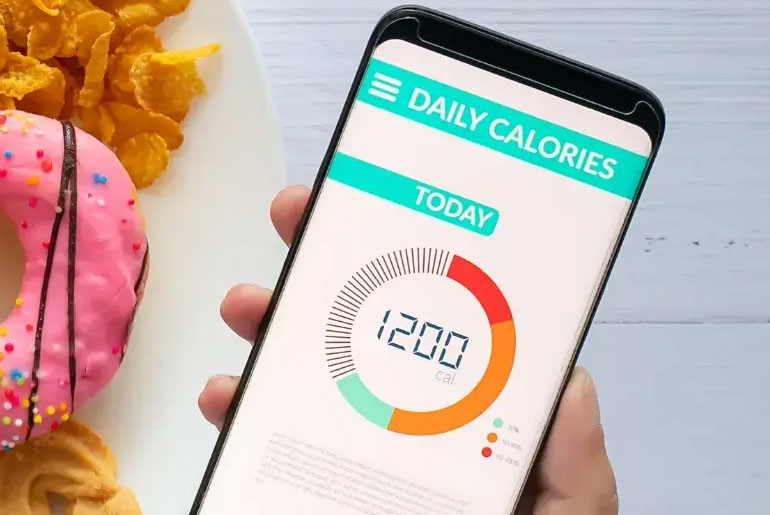With the growing awareness about health and fitness, more people are striving to achieve their fitness goals. Many are turning to health apps to track their water intake, meals, and calories, believing that counting calories and eating clean are the easiest ways to stay in shape. While a balanced diet is crucial for fitness goals, there are potential downsides to relying solely on calorie counting, especially when done through apps.
- Challenges with Self-Reported Calorie Intake: Several issues with tracking calories through apps. One major concern is the inaccuracy of self-reported calorie intake. People often misjudge portion sizes or forget to account for calories in snacks, oils, or sauces. Additionally, individuals may underreport calorie-dense foods due to social pressure or guilt when sharing their food choices within a group, leading to “social desirability bias.”
- The Importance of Nutrients: Focusing solely on calorie intake without considering the nutritional value of food can hinder progress toward health goals. For example, while a serving of instant noodles and a bowl of oatmeal with berries and nuts may contain the same number of calories (300), the nutritional value differs significantly. Oatmeal provides fiber, protein, vitamins, and minerals, while instant noodles offer little to no nutritional benefit. A calorie-only approach overlooks the role of essential nutrients like vitamins, minerals, fiber, and healthy fats in overall health. Relying solely on calorie restriction could lead to nutrient deficiencies and a poor-quality diet.
- Mental Health Risks: An obsession with calorie counting can lead to unhealthy relationships with food. Ashlesha Joshi, Senior Nutritionist at Tone30 Pilates, warns that extreme calorie counting can cause anxiety, guilt, and fear around food, potentially leading to disordered eating behaviors like anorexia or orthorexia. These unhealthy practices may harm both mental and physical health.
- Healthier Alternatives to Calorie Counting: Rather than focusing solely on calories, a healthier approach involves fostering a positive relationship with food and focusing on the quality of the diet. Joshi advocates for mindful eating, where individuals pay attention to hunger and satiety cues, which can improve satisfaction and reduce overeating. Sustainable habits like intuitive eating, which focuses on listening to the body’s cues for hunger and fullness, and prioritizing nutrient-dense foods like vegetables, lean proteins, and whole grains over processed foods.
A balanced diet rich in whole foods is key to achieving long-term fitness goals. While calorie counting may work for some, it’s not a sustainable approach for everyone. Emphasizing nutrient quality, developing a healthy relationship with food, and adopting mindful eating practices can lead to more sustainable and enjoyable fitness journeys.
Disclaimer:
The information contained in this article is for educational and informational purposes only and is not intended as a health advice. We would ask you to consult a qualified professional or medical expert to gain additional knowledge before you choose to consume any product or perform any exercise.







